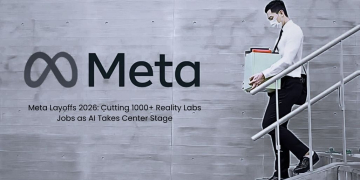Driven by advancements in automation and emerging technologies, the future of work is rapidly changing. Analyst Brian Nowak estimates that artificial intelligence will have a $4.1 trillion economic effect on the labor force, affecting about 44% of labor, over the next few years by changing input costs, automating tasks, and shifting how companies obtain, process, and analyze information. Additionally, Morgan Stanley pegs the AI effect at $2.1 trillion, affecting 25% of labor.
As machines and AI continue to replace and augment human tasks, it’s essential for businesses and workers alike to understand how to harness the power of human potential in this new automated world. While there are concerns about the impact of automation on job opportunities, there are also opportunities for human workers to thrive and contribute meaningfully.
The Changing Landscape of Work in an Automated World
Automation and technology are transforming the world of work at lightning speed. Tasks that humans once performed are now being automated, and machines are becoming increasingly intelligent and capable. This has led to a shift in the traditional job market, with certain roles becoming obsolete and new ones emerging.
One major impact of automation is the elimination of repetitive and mundane tasks. This frees up human workers to focus on higher-level thinking, creativity, and problem-solving. As machines take over routine tasks, humans can harness their potential and bring their unique skills to the forefront.
The nature of work is also changing. The traditional 9-5 office job is no longer the only option. Remote work, flexible schedules, and independent contracting are becoming increasingly prevalent. Advances in technology allow workers to collaborate easily from anywhere in the world, giving rise to a global workforce.
However, it’s important to acknowledge that automation also presents challenges. With machines capable of performing tasks more efficiently and accurately, some job roles may be at risk. This requires workers to continually adapt and acquire new skills to stay relevant in a rapidly evolving job market.
Embracing Automation While Harnessing Human Potetial
As humans, our ability to adapt and embrace technological advancements will play a crucial role in our professional success. Rather than fearing the rise of automation, we should understand how we can harness its power while leveraging our unique human potential.
One way to do this is by embracing automation as a tool to enhance our skills and efficiency. By offloading repetitive tasks to machines, we can focus on honing our cognitive abilities, creativity, and critical thinking. This enables us to take on more complex and intellectually stimulating work that requires human input.
Additionally, the future of work demands strong interpersonal skills. While machines excel at data analysis, problem-solving, and logistics, they cannot replicate our innate qualities such as empathy, emotional intelligence, and effective communication. These skills will become increasingly valuable as the workforce becomes more global and diverse.
It’s also important to note that AI may not always have the right answers, so organizations shouldn’t put full faith in this technology to manage tasks or processes. That said, humans should always be used to ensure checks and balances are maintained.
Enhancing Skills and Embracing Lifelong Learning
The changing landscape of work necessitates a shift in our approach to skills development and learning. In an automated world, it’s crucial to continuously enhance our skills and embrace lifelong learning to stay relevant and thrive.
One way to do this is by actively seeking opportunities to upskill and reskill. The advancements in automation technology offer new possibilities for professional development, and it’s important to seize these opportunities. Whether it’s through online courses, workshops, or certifications, investing in our own growth will pay off in the long run. Plus, remaining educated and trained on the latest advancements is critical in the event technology fails, a security breach occurs, or a blackout happens.
Additionally, developing a growth mindset is essential. Embracing the idea that we can continuously learn and adapt opens up a world of possibilities. Instead of stagnating, we should actively seek challenges and opportunities to stretch our abilities. This will not only help us stay competitive but also contribute to a more fulfilling and satisfying career.
Also, building a strong network is crucial for personal and professional growth. Connecting with individuals in our field and beyond allows us to learn from their experiences, gain new perspectives, and discover potential collaborations. By fostering meaningful connections, we can tap into a vast pool of knowledge and opportunities.
Nurturing a Culture of Innovation and Creativity
In an automated world, one of the most valuable skills to possess is the ability to think creatively and innovate. As technology continues to evolve, it is the human capacity for imagination and ingenuity that will set us apart from machines.
Nurturing a culture of innovation and creativity within organizations will be essential for success. This starts with leaders and managers fostering an environment encouraging risk-taking, experimentation, and out-of-the-box thinking. Employees should feel empowered to share their ideas and contribute to problem-solving discussions.
To cultivate our creative skills, we should adopt a mindset of perpetual curiosity and exploration. We can do this by actively seeking out new experiences, pursuing hobbies and interests, and exposing ourselves to diverse perspectives. Additionally, to enhance our creative thinking, we should consistently push ourselves to think beyond the usual boundaries and develop innovative solutions to problems. By doing so, we can foster our growth as creative individuals.
The Role of Leadership in Facilitating the Future of Work
In an automated world, the role of leadership is crucial in facilitating the future of work. As organizations navigate the complexities of revolutionary technologies and changing work dynamics, leaders must take on the responsibility of guiding their teams through this transition. One key aspect of leadership in the future of work is fostering a culture of adaptability and flexibility. Leaders must recognize the need for agility, encourage their teams to embrace change and be open to new ways of doing things. This includes providing opportunities for skill development and learning, as well as creating a supportive environment where employees feel comfortable experimenting and taking risks.
Leaders should also lead by example. They need to demonstrate a growth mindset and a willingness to adapt to new technologies and ways of working. By embracing innovation themselves, leaders can inspire their teams and drive a culture of continuous improvement.
Investing in Technology and Infrastructure
As the future of work continues to evolve, organizations must invest in the right technology and infrastructure to keep up with the changing landscape. This includes not only upgrading systems and software but also investing in cutting-edge technologies like AI, robotics, and automation. By investing in technology, organizations can streamline processes and increase efficiency, allowing employees to focus on higher-value tasks that require a human touch. This can lead to improved productivity, reduced errors, and, ultimately, a competitive advantage in the market. Furthermore, organizations must ensure that their infrastructure supports remote and flexible work options. With the rise of remote work and the need for flexibility, investing in secure and reliable technology that enables seamless collaboration and communication is essential. Embracing the future of work in an automated world requires organizations to invest in the right technology and infrastructure while also focusing on upskilling and reskilling their workforce. However, businesses shouldn’t automate everything to the point where employees stop communicating with each other because human teams are essential for maintaining checks and balances. Additionally, creating a flexible and remote-friendly work environment is crucial to attracting and retaining top talent.
As individuals, it’s important to continually update our skills and remain adaptable in a rapidly changing work landscape. By embracing lifelong learning and actively seeking opportunities to upskill and reskill, we can position ourselves for success in an automated world. By staying informed, proactive, and adaptable, both organizations and individuals can navigate the challenges and embrace the opportunities that the automated world presents. Together, we can shape a future of work that values human potential and enables us to thrive.






